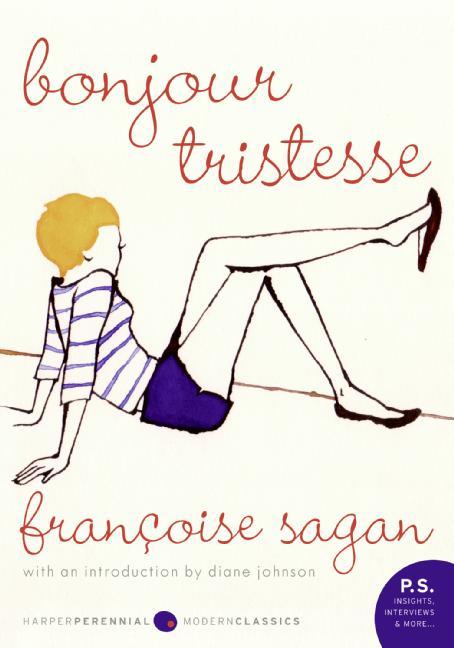Oh where to begin. I should start by telling you how I came across this title. Ben at Dead End Follies is hosting a year-long reading challenge called Smooth Criminals that I'm taking part in. The challenge focuses on literary crime fiction and one of the categories is to read a work by a writer who did time. Upon googling authors who spent time in prison I stumbled across 10 Literary Geniuses Who Went To Jail. Upon further Googling I found that not only did genet go to prison, but he wrote one of his novels, Our Lady of the Flowers, while he was in there:
"Jean Genet's first, and arguably greatest, novel was written while he was in prison. As Sartre recounts in his introduction, Genet penned this work on the brown paper which inmates were supposed to use to fold bags as a form of occupational therapy. The masterpiece he managed to produce under those difficult conditions is a lyrical portrait of the criminal underground of Paris and the thieves, murderers and pimps who occupied it. Genet approached this world through his protagonist, Divine, a male transvestite prostitute. In the world of Our Lady of the Flowers, moral conventions are turned on their head. Sinners are portrayed as saints and when evil is not celebrated outright, it is at least viewed with a benign indifference. Whether one finds Genet's work shocking or thrilling, the novel remains almost as revolutionary today as when it was first published in 1943 in a limited edition, thanks to the help of one its earliest admirers, Jean Cocteau."
I thought this all sounded quite interesting and unlike anything I've ever read. A male transvestite prostitute as the protagonist? Thieves, murderers, and pimps? I'm in. So I bought the novel at Half Price Books and even after reading a few pages I knew I'd been right - this was unlike any other book I've read before. To start, the prose is shockingly beautiful. It reads like a poem, lyrical and rhythmic. Since I read a translated edition I can only assume that the original French edition read even more handsomely, but kudos to the translator.
"Jean Genet's first, and arguably greatest, novel was written while he was in prison. As Sartre recounts in his introduction, Genet penned this work on the brown paper which inmates were supposed to use to fold bags as a form of occupational therapy. The masterpiece he managed to produce under those difficult conditions is a lyrical portrait of the criminal underground of Paris and the thieves, murderers and pimps who occupied it. Genet approached this world through his protagonist, Divine, a male transvestite prostitute. In the world of Our Lady of the Flowers, moral conventions are turned on their head. Sinners are portrayed as saints and when evil is not celebrated outright, it is at least viewed with a benign indifference. Whether one finds Genet's work shocking or thrilling, the novel remains almost as revolutionary today as when it was first published in 1943 in a limited edition, thanks to the help of one its earliest admirers, Jean Cocteau."
I thought this all sounded quite interesting and unlike anything I've ever read. A male transvestite prostitute as the protagonist? Thieves, murderers, and pimps? I'm in. So I bought the novel at Half Price Books and even after reading a few pages I knew I'd been right - this was unlike any other book I've read before. To start, the prose is shockingly beautiful. It reads like a poem, lyrical and rhythmic. Since I read a translated edition I can only assume that the original French edition read even more handsomely, but kudos to the translator.
Now, describing the plot is where is gets a little sticky. It's not straightforward in the least. It is dreamlike and almost follows a stream of conscious, but not exactly 100% of the time. It seems to come and go; we read Genet's thoughts as he lets himself succumb to them on the one hand, building his own fantasies through the stories of Divine, but the work as a whole seems to speak to the isolation of oneself and the gift of our freedom of thought once it's removed from the hustle bustle of the everyday. It highlights the possibilities of fantasy and our ability to create magic when hurling our thoughts full-force ahead.
The whole world is dying of of panicky fright. Five million young men of all tongues will die by the cannon that erects and discharges. But where I am I can muse in comfort at the lovely dead of yesterday, today, and tomorrow.
Anyhow, that doesn't really sum up much. The novel is actually quite erotic as Genet's thoughts often tend toward the sexual. Much of it is a meditation on masturbation; an act I can only assume occurs often in prison. This is a novel about passion and intimacy; there are some raunchy bits but they are written so tastefully. It makes sense why Genet may focus on these ideas while in prison, deprived of any sort of physical sexual activity, he chose to write about it as a means of fulfillment and a means of escape. That's how I understand it at least.
This one definitely begs for a reread because there are so many ideas to digest and consider. I would recommend this to anyone who is looking to read something a little different,with ideas that may be a little outside or his or her comfort zone. I'd also push this on anyone who has a passion for eloquently written verse-like language.
This one definitely begs for a reread because there are so many ideas to digest and consider. I would recommend this to anyone who is looking to read something a little different,with ideas that may be a little outside or his or her comfort zone. I'd also push this on anyone who has a passion for eloquently written verse-like language.
Publisher: Grove Press, 1951








